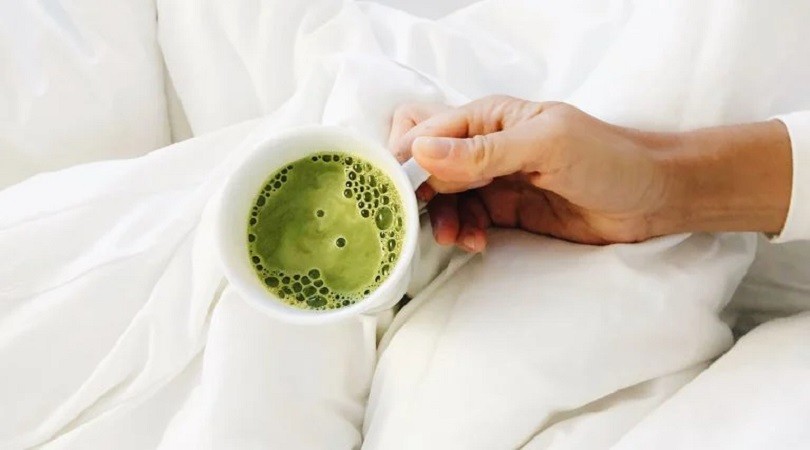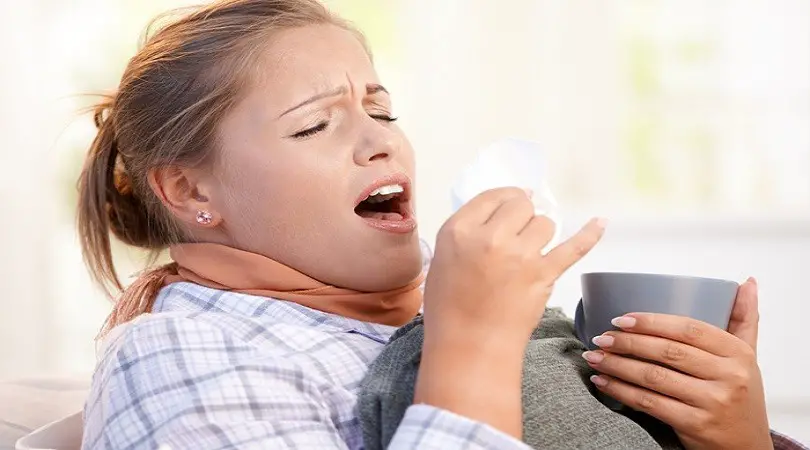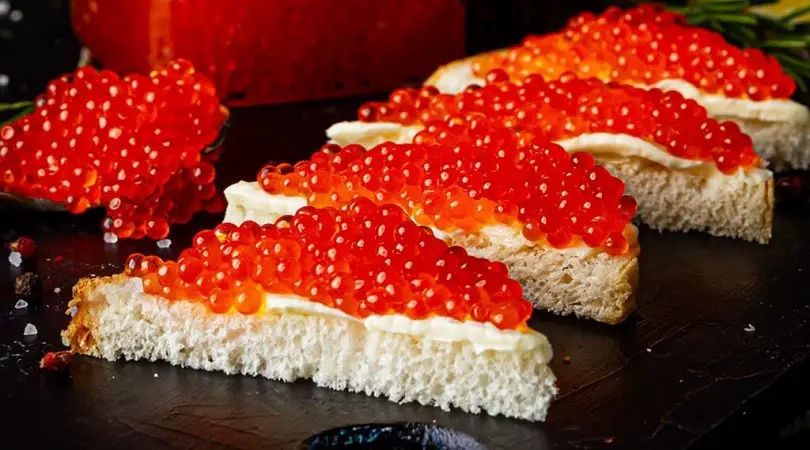Last Updated on January 6, 2025
Yes, you can drink matcha while pregnant in moderation. Matcha is a type of green tea that is high in antioxidants and has many health benefits.
However, it is important to not consume too much matcha during pregnancy due to its caffeine content. Consuming too much caffeine can increase the risk of miscarriage and other complications. It is recommended to limit caffeine intake to no more than 200mg per day during pregnancy. Matcha contains approximately 35mg of caffeine per cup, so it is safe to consume in moderation. As with any food or drink during pregnancy, it is important to consult with your healthcare provider before adding matcha to your diet.

Credit: www.matchaconnection.com
Related: Can You Eat Ceviche While Pregnant?
Understanding Matcha And Its Benefits
Matcha is a type of green tea that comes from japan, and it’s been around for centuries. Its popularity has recently increased, thanks to its numerous health benefits. While there is no conclusive evidence suggesting the safety of consuming matcha during pregnancy, it’s essential to understand its benefits and risks.
In this blog post, we’ll discuss matcha’s nutritional value, role in pregnancy, and whether or not it’s safe to drink during pregnancy.
What Is Matcha?
Matcha is a form of green tea that is made by grinding green tea leaves into a fine powder. Unlike traditional forms of green tea, matcha tea leaves are grown in the shade, which gives the tea a bright green color.
Matcha tea leaves are also harvested by hand, which preserves their nutritional content. Since matcha is a powder, it’s usually whisked with hot water rather than steeped, so it contains higher amounts of caffeine per serving.
Nutritional Benefits Of Matcha Tea
Matcha tea contains a variety of nutrients that are beneficial for overall health.
- Catechins: matcha tea contains high levels of catechins, which are antioxidants that protect cells from oxidative damage.
- L-theanine: this amino acid can help to reduce stress and anxiety, and promote relaxation without causing drowsiness.
- Vitamins and minerals: matcha tea includes vitamin c, selenium, chromium, and magnesium, which are essential for good health.
The Role Of Matcha In Pregnancy
While there is no conclusive evidence suggesting the safety of consuming matcha during pregnancy, it’s essential to understand the potential risks. Matcha contains a moderate amount of caffeine, which may pass through the placenta to the baby. Too much caffeine during pregnancy may cause low birth weight, preterm birth, and miscarriage.
However, drinking a moderate amount of matcha tea during pregnancy is generally considered safe. The recommended daily limit for caffeine during pregnancy is 200 milligrams, which is roughly equivalent to one cup of matcha tea.
Understanding matcha and its benefits during pregnancy is essential for expectant mothers. While matcha tea has numerous health benefits, it’s important to consume it in moderation during pregnancy due to its caffeine content. As always, consult with your healthcare provider before starting any new health routine during pregnancy.
Related: Can You Use Vicks Vaporub While Pregnant?
Risks Of Drinking Matcha While Pregnant
Caffeine Content In Matcha Tea And Its Effects On Pregnancy
Matcha tea is a popular drink that has become more popular in recent years because of its numerous health benefits. However, it is important to know the amount of caffeine present in it. Although matcha tea is better known for its antioxidants and amino acids, it also contains caffeine, and caffeine intake during pregnancy must be monitored.
Here is what you need to know about matcha tea and pregnancy:
- A single cup of matcha tea can contain up to 70 milligrams of caffeine. This amount of caffeine could be within the limit of 200 milligrams of caffeine per day for pregnant women. However, too much caffeine can cause side effects.
- Excessive caffeine intake may increase the risk of miscarriage and other pregnancy complications. High caffeine intake during pregnancy has also been linked to low birth weight and premature birth.
- Matcha tea also contains other components, such as epigallocatechin gallate, which can cross the placenta and may impair fetal growth and development.
Potential Risks Of Consuming Matcha Tea While Pregnant
While matcha tea may offer benefits, it can also pose potential risks to pregnant women and their developing babies.
Here are the potential risks of consuming matcha tea during pregnancy:
- Matcha tea contains caffeine that can increase blood pressure and heart rate. This can lead to anxiety, insomnia, and other health complications during pregnancy.
- Excessive caffeine intake during pregnancy can cause dehydration, which can lead to headaches, dizziness, and fatigue.
- The high levels of lead in some matcha teas can also cause problems during pregnancy. It is important to buy matcha tea from reputable sources and check for lead levels before buying.
What The Experts Say About Drinking Matcha During Pregnancy
There is no doubt that matcha tea has several health benefits. However, when it comes to pregnancy, it is best to consult an expert before adding it to your daily routine.
Here’s what some experts have to say about matcha tea during pregnancy:
- According to the american college of obstetricians and gynecologists, pregnant women should limit their caffeine intake to 200 milligrams per day or less. This amount can vary in different countries.
- Some other experts believe that while matcha tea is safe during pregnancy, it is essential to monitor your caffeine intake.
- Health experts suggest that pregnant women should consume matcha tea in moderation and choose a brand with lower lead levels.
While matcha tea may offer several health benefits, you should consume it in moderation during pregnancy. Make sure to consult a healthcare provider before adding it to your daily routine.
Related: Can You Get Pregnant From A Toilet Seat?
Alternatives To Matcha For Pregnant Women
Can You Drink Matcha While Pregnant?
Pregnancy is an essential time to focus on your diet. It is a time when you have to be extra careful about what you eat and drink. Drinking matcha while pregnant can be a concern for many women. Matcha is a type of green tea that is high in caffeine, and caffeine intake during pregnancy can be harmful.
However, there are alternatives to matcha that pregnant women can consume to get similar benefits.
Safe Caffeine Alternatives For Pregnant Women
Caffeine intake should be limited during pregnancy to prevent any harm to the baby.
- Decaf green tea: decaf green tea is similar to matcha and contains low amounts of caffeine. It is rich in antioxidants and can provide numerous health benefits during pregnancy.
- Herbal teas: herbal teas like chamomile, ginger, and peppermint are safe to consume during pregnancy and can provide a refreshing taste to your beverages.
- Fruit juices: freshly squeezed fruit juices are a healthy and delicious way to consume nutrients that are essential during pregnancy.
Other Teas That Can Provide Similar Benefits To Matcha
Matcha is high in antioxidants and provides numerous health benefits.
- White tea: white tea is similar to matcha in terms of its antioxidant content. It is low in caffeine, making it a safe option for pregnant women.
- Rooibos tea: rooibos tea is rich in antioxidants and is naturally caffeine-free. It can provide relaxation and has a sweet and nutty flavor that is perfect for pregnancy.
- Black tea: black tea is rich in antioxidants and has less caffeine than coffee. It is safe to consume during pregnancy in moderation.
Healthy Beverages That Pregnant Women Can Consume
Staying hydrated during pregnancy is crucial.
- Water: drinking plenty of water is essential during pregnancy. It helps in maintaining body temperature, supporting the baby’s growth, and carrying nutrients to the placenta.
- Milk: milk is an excellent source of calcium, which is essential for the baby’s development. It also contains vitamin d and protein, making it a healthy drink for pregnant women.
- Fresh coconut water: fresh coconut water is a refreshing and hydrating drink that is safe to consume during pregnancy. It contains essential electrolytes and has numerous health benefits.
Pregnant women should avoid consuming matcha due to its high caffeine content. However, there are numerous safe alternatives that pregnant women can consume to receive similar benefits. Always check with your healthcare provider before consuming any new beverage during pregnancy to ensure it is safe for you and your baby.
Frequently Asked Questions Of Can You Drink Matcha While Pregnant?
Is It Safe To Drink Matcha Tea During Pregnancy?
Matcha is safe to drink during pregnancy in moderation. However, it is important to consult your doctor before consuming it.
Can Drinking Too Much Matcha During Pregnancy Be Harmful To The Baby?
Too much caffeine can increase the risk of miscarriage and low birth weight. Matcha contains caffeine, so it is important to limit your intake.
How Much Matcha Can I Consume During Pregnancy?
It is recommended to consume no more than 200mg of caffeine per day during pregnancy. A cup of matcha contains around 70mg of caffeine, so limit consumption to less than three cups per day.
Are There Any Benefits Of Consuming Matcha During Pregnancy?
Matcha is rich in antioxidants and nutrients that can be beneficial for both the mother and the baby. It can help boost immunity, improve brain function, and reduce stress and anxiety.
Conclusion
Drinking matcha during pregnancy can be safe in moderation. However, it is important to consult with your healthcare provider before consuming any new food or beverage. Matcha contains caffeine and other compounds that could potentially have negative effects on pregnancy.
While there is not enough research to determine the exact amount of matcha that is safe to consume during pregnancy, it is advisable to limit intake to no more than one cup per day. Additionally, it is recommended to purchase high-quality matcha from a reputable source to avoid any potential risks associated with consuming contaminated products.
Remember to prioritize your health and the health of your growing child and make informed choices when it comes to your diet during pregnancy.











